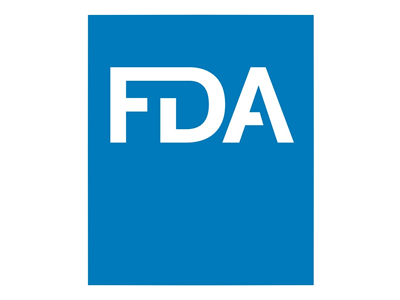FDA grants accelerated approval to mirvetuximab soravtansine-gynx for FRα positive, platinum-resistant epithelial ovarian, fallopian tube, or peritoneal cancer

On November 14, 2022, the Food and Drug Administration granted accelerated approval to mirvetuximab soravtansine-gynx (Elahere, ImmunoGen, Inc.) for adult patients with folate receptor alpha (FRα) positive, platinum-resistant epithelial ovarian, fallopian tube, or primary peritoneal cancer, who have received one to three prior systemic treatment regimens. Mirvetuximab soravtansine-gynx is a folate receptor alpha directed antibody and microtubule inhibitor conjugate. Patients are selected for therapy based on an FDA-approved test.
Today, the FDA also approved the VENTANA FOLR1 (FOLR-2.1) RxDx Assay (Ventana Medical Systems, Inc.) as a companion diagnostic device to select patients for the above indication.
Efficacy was evaluated in Study 0417 (NCT04296890), a single-arm trial of 106 patients with FRα positive, platinum-resistant epithelial ovarian, fallopian tube, or primary peritoneal cancer. Patients were permitted to receive up to three prior lines of systemic therapy. All patients were required to have received bevacizumab. The trial enrolled patients whose tumors were positive for FRα expression as determined by the above assay. Patients were excluded if they had corneal disorders, ocular conditions requiring ongoing treatment, Grade >1 peripheral neuropathy, or noninfectious interstitial lung disease.
Patients received mirvetuximab soravtansine-gynx 6 mg/kg (based on adjusted ideal body weight) as an intravenous infusion every three weeks until disease progression or unacceptable toxicity. Tumor response assessments occurred every six weeks for the first 36 weeks and every 12 weeks thereafter.
The main efficacy outcome measures were investigator-assessed overall response rate (ORR) and duration of response (DOR) evaluated according to RECIST version 1.1. In the efficacy evaluable population of patients who had platinum resistant, measurable disease, and received at least one dose (104 patients), the confirmed ORR was 31.7% (95% CI: 22.9, 41.6) and median DOR was 6.9 months (95% CI: 5.6, 9.7).
The most common (≥20%) adverse reactions, including laboratory abnormalities, were vision impairment, fatigue, increased aspartate aminotransferase, nausea, increased alanine aminotransferase, keratopathy, abdominal pain, decreased lymphocytes, peripheral neuropathy, diarrhea, decreased albumin, constipation, increased alkaline phosphatase, dry eye, decreased magnesium, decreased leukocytes, decreased neutrophils, and decreased hemoglobin. Product labeling includes a boxed warning for ocular toxicity.
The recommended mirvetuximab soravtansine-gynx dose is 6 mg/kg adjusted ideal body weight (AIBW) administered once every three weeks (21-day cycle) as an intravenous infusion until disease progression or unacceptable toxicity.
View full prescribing information for Elahere.
This application was granted priority review. A description of FDA expedited programs is in the Guidance for Industry: Expedited Programs for Serious Conditions-Drugs and Biologics.
Healthcare professionals should report all serious adverse events suspected to be associated with the use of any medicine and device to FDA’s MedWatch Reporting System or by calling 1-800-FDA-1088.
For assistance with single-patient INDs for investigational oncology products, healthcare professionals may contact OCE’s Project Facilitate at 240-402-0004 or email OncProjectFacilitate@fda.hhs.gov.

